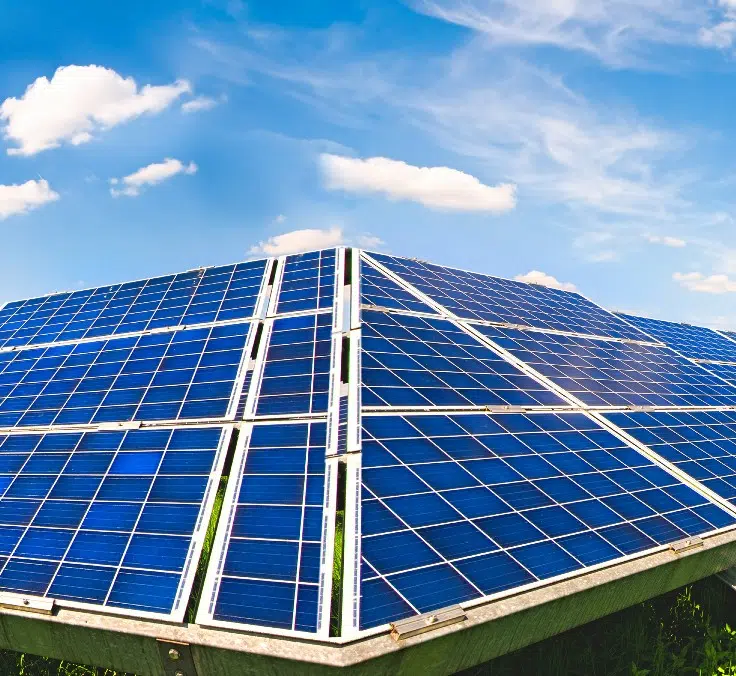INSURANCE| 02.23.2024
Is your home efficient?
Energy efficiency is a topic that many people are quite concerned about, especially given the rising energy costs we all experienced this winter. Do you want to know if your home is efficient and learn about how to save money on your energy bills? It’s up to you…
An efficient home is one that can maintain a comfort level that is the same as or better than the level of a similar home, while also consuming less energy. In other words, an efficient home is not only more sustainable, it can also help you save on your energy bills.
As part of our collaboration with the Association of Energy Efficient Enterprises (A3E) and the Hobeen energy platform, we’re going to show you how you can reduce your electricity, natural gas, and water bills just by making a few changes at home and altering your consumption habits.
Tips for improving your home
- Insulation and ventilation: don’t let your heat escape!
Do you see the narrow gap between the door and the floor? This is what’s known as a thermal bridge. During the winter, the heat generated by your heating system can escape under the door, and in the summer, the heat outside can find its way in. By installing weatherstripping, you can stop this air movement. We also recommend double-pane windows, to achieve the best thermal comfort.
- Don’t obstruct your heating or air conditioning elements
Radiators emit heat, which means that if you cover them up, you’ll be wasting energy, because only the element you’ve put on top of the radiator will be heated. If you use portable air conditioners, you can improve efficiency by keeping them away from any heat sources (sunlight, ovens, light bulbs, etc.).
- Old electrical appliances can be wasteful
Electrical appliances are responsible for more than 55% of a home’s electricity consumption, with the refrigerator being the one that uses the most energy. If your refrigerator is more than 10 years old, you should think about replacing it with a more efficient model. It’s also important to properly maintain other electrical appliances that also use high amounts of energy (such as irons and clothes dryers).
- Keep your home brightly lit, while spending less
Have you ever tried to count the number of light bulbs you have all around your home? These days, most homes have a high number of light sources, so if you haven’t done so already, we recommend replacing your old light bulbs with new LED versions. This will help you save on electricity costs, without reducing illumination levels.
Consumption habits
- Control your home’s temperature
During the winter, keep your home at a temperature of no more than 19°C. At night, and whenever you’re away from home, turn off your heating system completely. This will help cut your energy bills because you won’t be generating energy that you don’t need. The best way to control your home’s temperature is by using a smart thermostat. This is a device that can turn your heating system on and off automatically, and you can also program a custom schedule.
- Use a mobile app to optimize consumption
One of the great advantages of our digitalized lives is the ability to control devices remotely with our smartphones. There are numerous apps available, such as the one offered by Hobeen, that let you monitor consumption levels, allowing you to make your home as efficient as possible.
- Minimize “ghost” consumption
Did you know that all the things you keep plugged into the wall, such as chargers, TVs, routers, videogame consoles, microwave ovens, etc., are using energy, in amounts that can represent up to 10% of your home’s electricity consumption? Try shutting off their power completely by using power strips with switches that let you turn off various devices at once.
- Be smart when using electrical appliances
Your dishwasher and washing machine probably have programs marked as ECO. Using these modes will help you save water and energy, while still giving you results similar to those of the regular settings. It’s also a good idea to adjust the temperature of your refrigerator as the seasons change. We recommend setting it at 4°C in the summer, and at 6°C in the winter.
These are all simple tips that you can implement yourself, as a way of increasing your home’s efficiency and saving energy. At MAPFRE, we’re playing our part by promoting and sharing the principles of an energy culture based on responsible energy use and management. If you’re interested in making your home more efficient and more secure, take a look at our home insurance policies, which offer forms of coverage that are best adapted to your home’s insurance needs.
RELATED ARTICLES:




